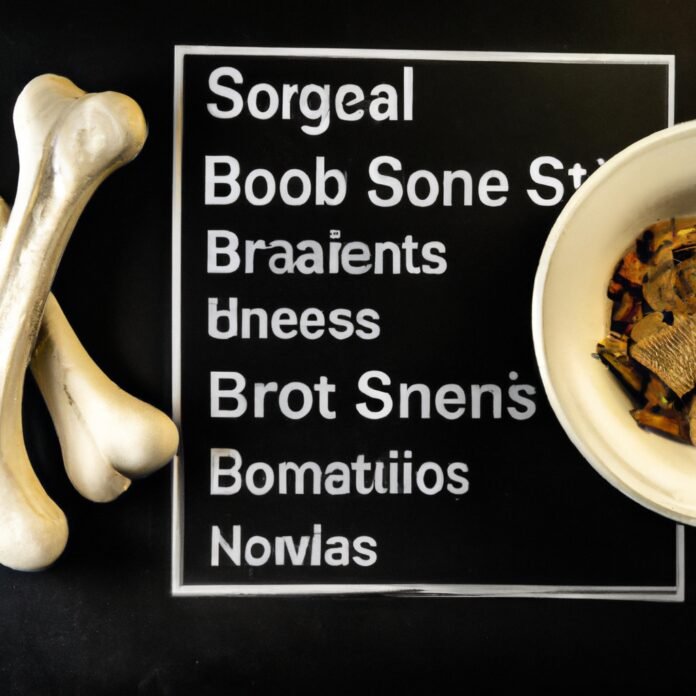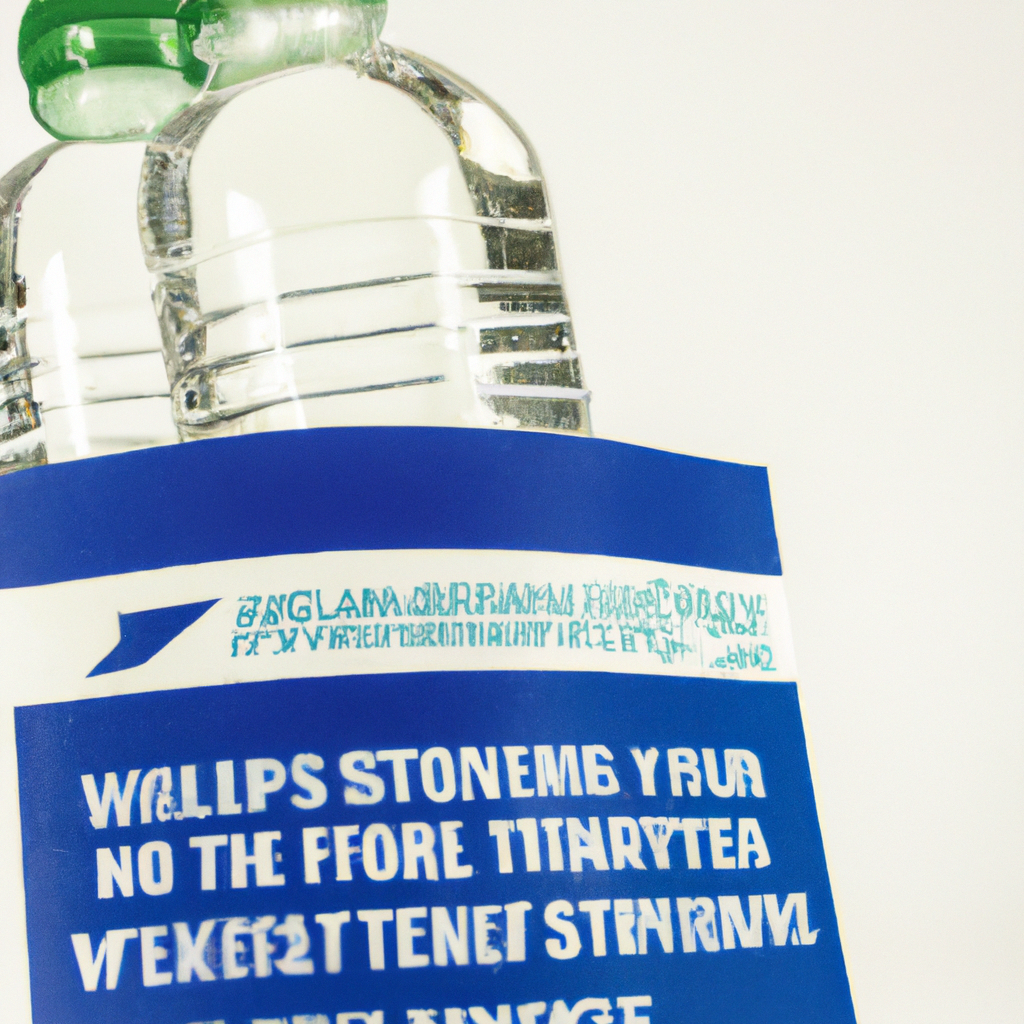We all know how important proper nutrition is for overall health and wellness. But did you know that what you eat can also affect your bones and joints? Eating a balanced diet rich in minerals, vitamins, and other nutrients can help to support strong bones and improved joint health, and can even lead to improved mobility. In this article, we’ll explore how making beneficial dietary choices can help keep your bones and joints healthy for years to come.
1. Building a Solid Foundation: Understanding the Role of Nutrition in Strengthening Bones and Joints
As we age, strong bones and healthy joints become more and more important. To keep your skeletal system healthy, you need to build a solid foundation– and that starts with good nutrition. There are several key nutrients that are especially important for promoting bone strength and decreasing our risk of osteoporosis and arthritis.
Calcium: Calcium is an essential mineral for maintaining strong bones and healthy teeth. Adults aged 19-50 should aim for 1,000 milligrams of calcium per day, while adults over 50 should get 1,200mg (the equivalent of three servings of dairy per day). To get the right amount of calcium, try incorporating more dairy products, dark leafy greens, and sardines into your diet. You can also get more calcium by taking a supplement, however, making the needed dietary changes is best.
Vitamin D: Vitamin D helps your body absorb and use calcium more efficiently, making it an important vitamin for strong bones. Vitamin D is difficult to get solely through food, however, you can get it through exposure to sunlight. If you’re not outside very often, you can get vitamin D from certain foods such as salmon and fortified cereals and juices. Vitamin D supplements are also available.
Vitamin K: This lesser-known vitamin helps your bones utilize calcium more efficiently than they would without it, making it a key player in keeping your bones healthy. Leafy greens such as broccoli, kale, and spinach are excellent sources of vitamin K. You can also get it from fermented foods like sauerkraut and yogurt, as well as from egg yolks and certain oils.
Other important vitamins and minerals:
- Magnesium
- Potassium
- Vitamin C
- Vitamin B6
- Vitamin B12
By understanding the role of nutrition in strengthening bones and joints, and making sure to get all the essential vitamins and minerals your body needs, you can help keep your skeletal system healthy, strong, and resilient for years to come.
2. Unleashing the Power of Nature: Harnessing Nutrients for Optimal Bone and Joint Health
We are all interested in preserving our mobility into old age, and the key to doing so is ensuring healthy bones and joints. Many people don’t realize that nature provides us with powerful nutrients that can help achieve this goal. From calcium and Vitamin D to vitamin B and K2 to magnesium and manganese, the options are vast.
- Calcium – This mineral is essential for strong bones and our bodies need it throughout life. We can get calcium from dairy products, some fish, and certain vegetables, though supplements may be necessary to make up for any deficiencies in the diet.
- Vitamin D – Vitamin D is responsible for helping our body absorb and use calcium, and it can be found in certain foods such as fortified milk, some fish, and eggs. Sunshine is also a main source of this vitamin.
- Vitamin B – Vitamin B helps to reduce inflammation and maintain muscle mass, both of which are important for healthy bones and joints. It is found in a variety of foods, such as avocado, leafy greens, and legumes.
- Vitamin K2 – Vitamin K2 is instrumental in sending calcium to the right places in the body, such as our bones rather than our arteries. It can be found in eggs, cheese, and other dairy products.
- Magnesium – Magnesium helps our body use calcium and is found in certain foods such as oatmeal, nuts, cocoa, and leafy greens.
- Manganese – This trace element helps us to absorb calcium and is found in eggs, spinach, and whole grains.
Though these nutrients are essential, it is important to note that taking too much of any one of them can cause serious health problems. It’s always best to consult a physician and have some tests done if there is any concern about deficiencies.
In short, providing our bodies with the proper nutrients can be a great way to support and maintain long-term bone and joint health. With the right balance, our bodies will be able to better utilize these vitamins and minerals to create a stronger foundation for our physical wellbeing.
3. Nourishing from Within: Key Nutritional Guidelines to Support Strong Bones and Flexible Joints
As we age, arthritis and other joint-related aches and pains can become more pronounced, leading to pain and discomfort. Taking care of your joints from the inside out is the best way to prevent this from happening. Eating a healthy and balanced diet is key to nourishing your body and giving your bones and joints the nutrients they need to stay strong and flexible.
1. Vitamins A & D
Vitamins A and D are essential for joint health. Vitamin A is important for tissue repair, while vitamin D helps regulate calcium balance and aids in bone strength. Foods high in these vitamins include fish, eggs, and leafy green vegetables.
2. Calcium and Magnesium
Calcium and magnesium are two essential minerals for healthy bones and joints. They help to support the integrity of bone tissue, which helps to prevent fractures and reduces joint pain. The best sources of calcium are dairy products, leafy green vegetables, and some fish. Magnesium can be found in nuts, legumes, and some leafy greens.
3. Omega-3 Fatty Acids
Omega-3 fatty acids are touted for their heart health benefits, but they can also help keep your joints healthy. Omega-3 fatty acids are known to reduce inflammation, which is important in preventing arthritis and other joint-related pain. Omega-3s can be found in fatty fish, walnuts, and flaxseeds.
4. Hydration
Staying well-hydrated is important for joint health, as it helps to keep your joints lubricated and functioning properly. Aim to drink at least 8 glasses of water a day. You can also incorporate more water-rich fruits and vegetables such as cucumbers, celery, and watermelons into your diet to help you stay hydrated.
5. Supplements
In addition to eating a healthy and balanced diet, you can also take supplements to make sure your bones and joints are getting the necessary nutrients they need. Supplements that can help support healthy bone and joint health include calcium, magnesium, vitamin D, fish oil, and collagen.
4. The Perfect Blend: Exploring the Winning Combination of Nutrients for Lifelong Bone and Joint Vitality
Bones and joints go together like bread and butter, and it’s essential to make sure they’re getting all the nutrients they need for optimal longevity and vitality. From calcium to magnesium and beyond, there are a number of powerful nutrients that your bones and joints need to stay flexible and healthy, and finding the right blend of these can be beneficial for lifelong bone and joint care.
In many cases, the winning combination of nutrients for bone and joint health begins with calcium. This mineral is essential for healthy bones, and it’s also been noted to help protect against the risk of developing osteoporosis. However, calcium needs to be balanced with other minerals such as magnesium, phosphorus, and vitamin D, which work together to create bones that are strong and resilient.
In corner-shop supplements, you may find that calcium is given much more attention than other minerals, and while it is important, they shouldn’t be treated as if they were independent. Instead, supplement forms that contain several of these minerals, like whole-food bone and joint support capsules, can provide a more well-roundedger supplementation.
These capsules provide a blend of vitamins, minerals, and antioxidants that are specifically formulated to support bone and joint health. In particular, these capsules contain a variety of ingredients such as curcumin, collagen, and resveratrol, which have all been noted for their potential to help promote joint and bone health.
The Perfect Blend
- Calcium: Essential for healthy bones
- Magnesium: Works with calcium to make bones strong and resilient
- Phosphorus: Helps with calcium absorption
- Vitamin D: Needed for the absorption of calcium and other minerals
- Collagen: May promote joint health
- Curcumin: Has properties that may help protect against joint degeneration
- Resveratrol: Helps fight inflammation in joints.
With these capsules, you’re getting all the essential vitamins and minerals in one convenient package. Plus, they contain targeted antioxidants that help to protect against inflammation and joint degeneration, making them an ideal supplement for lifelong bone and joint vitality.
Strong bones and joint health are essential for a long, healthy life. With a proper diet and the right nutrition, you can ensure your bones and joints stay healthy and strong. Start making adjustments to your diet today, and you will definitely benefit in the long run.



